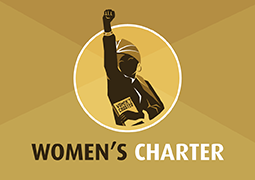
The Deputy Chairperson of National Council of Provinces (NCOP), Ms Sylvia Lucas, has made a call for all the institutional weaknesses that impede gender-responsive budgeting across the three spheres of government to be addressed urgently.
Speaking during a Women’s Charter Review report-back session in Mpumalanga, Ms Lucas said through the review process, “Parliament seek to ensure synergy, cooperation and coordination of all strategic players and demand that gender mainstreaming becomes an instrument that is used across all government planning processes.”
The NCOP Deputy Chairperson is championing a nationwide consultation process on a review of the Women’s Charter for Accelerated Development. Part of the objective was to assess the efficiency of existing systematic and institutional mechanisms across the spheres of government and advance gender equality.
“Through the countrywide engagements, Parliament was able to gather valuable contributions and findings, which have become the basis upon which engagements with provinces, districts and metros will now continue. We realised that whilst various gender-responsive budgeting mechanisms existed across the three spheres of government, the majority of them are often fragmented and lacked coherence and broad political support.
“There are no binding mechanisms for the implementation of gender-responsive budgeting, monitoring, evaluation and auditing framework. There are structural and institutional weaknesses that impede gender-responsive budgeting that must be urgently addressed across the three spheres of government,” said Ms Lucas.
She believes the newly developed Women’s Charter for Accelerated Development, which encompasses 15 strategic objectives and a set of broad priority actions will assert the legitimacy and rights of women to enjoy improved quality of life.
Ms Lucas says the Charter further demands that a theory of change be embedded across all facets of the state machinery in order to create an enabling environment for gender equality to be achieved.
She told the stakeholders during the feedback session that adherence to the prescripts of the charter will require a social compact and commitment across the three spheres of government. The Women’s Charter Equality can only be realised if the state machinery in all its facets is functionally gender mainstreamed.
“Legislative change must be accompanied not only by policy measures that promote this constitutional principle, but should result in the implementation of gender equality across all sectors of society. Gender equality is a fundamental human right and an essential pre-requisite for achieving a gender responsive society,” she said.
Representing the Commission for Gender Equality, Commissioner Lindiwe Ntuli-Tloubatla made a call for South Africa to use it already-existing laws and the Constitution to advance gender equality. “In South Africa, we have very beautiful policies. We are hailed in the United Nation for having the best legislation. Let us make use of the laws and the Constitution to advance gender equality. If we are committed to matters of gender equality, issues of poverty, unemployment, underemployment of women need to be addressed,” she said.
Other stakeholders supporting the Women’s Charter included the Financial and Fiscal Commission, which also emphasised the need to institutionalise gender-responsive budgeting across all the spheres of government. The provincial government of Mpumalanga as well as the three municipal districts also pledged their support for the newly reviewed Women’s Charter for Accelerated Development.
Sakhile Mokoena
26 September 2022

